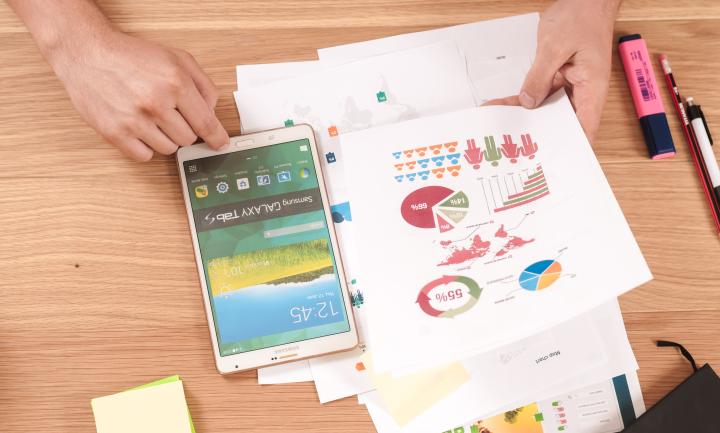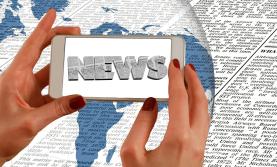5 Crucial Applications of Data Analytics in Personal and Business Use
Image

Not too long ago, the world of data analytics was a closed door to most people. It required certain educational qualifications and specific experience, and it seemed like it would always be far outside the reach of everyday citizens. Today, that's far from true.
Data analytics has become helpful for everyone to understand and use in their own lives—both at work and as they navigate their personal lives. This post will introduce ways to use data analytics skills to your benefit in both business and your personal life.
Different Uses of Data Analytics
Data analytics is the process of analyzing data and putting it into context. Data analytics can be used to find out what is happening in the past, predict what will happen in the future, and find patterns in data. It is also used to find the best solution to a problem.
The more information you have about your customers, their behavior, and preferences, the better decisions you can make about them. This means that there are many ways that businesses can use data analytics for both personal (for example, shopping) and business use (for example, marketing).
Weather
As a business owner, you can use weather data to create alerts. There are many ways that your company could benefit from data analytics for weather forecasting. For example, if there's severe weather in the area where you do business, you may want to send an alert out on social media or text messages about closing early for safety reasons. You could also send out a notification about what type of clothing would be best for an upcoming commute based on current temperatures and wind speed forecasts.
There are many ways businesses collect this type of information: one way is through cloud computing services like AWS (Amazon Web Services). Cloud computing services allow you to use resources from across multiple computers rather than having all of your data reside on one machine at any given time; this makes it easier for companies who have large amounts of data because they don't need as much space anymore.
Business
Data analytics is used in business to help make decisions. It's also used to help companies understand their customers, competition, and themselves. It is a way for businesses to gain insights into their consumers' behavior. This can be done by analyzing customer purchases, website traffic, social media interactions, etc.
Businesses can see trends or patterns that they may not have noticed before by using data analyzed. A company could use this information to create new products or services based on what customers want or need from them; they could also use it when creating advertisements so that the message resonates with potential clients who might be interested in buying it (this is referred to as "targeted marketing).
Sports
Sports teams are using data analytics to make better decisions. Data analytics help coaches and players perform better, recruit new players, and evaluate performance.
When you think of a sports team, what comes to mind? Is a locker room full of sweaty men showering after practice? An owner sitting in his luxury box? Does a quarterback call play on the field? These are all valid answers, but none of them would be correct if we're talking about professional sports teams.
Today's modern sports teams use technology to collect data from every aspect of their organization: from player performance to fan engagement; from ticket sales to sponsorship deals; from scheduling practices for games against rival teams (and how long it takes for those rival teams' fans at the home stadium) -- everything is measured and analyzed by computer programs so that each decision made by management is as informed as possible.
Teams have even started using artificial intelligence (AI) algorithms to predict which players might join their team based on their analytics profiles alone! This has led some organizations like the Seattle Seahawks even start creating virtual simulations instead of having physical practices anymore because they know exactly what needs improvement based on recent data analysis results!
Politics
In politics, data analytics is used to target voters. Political campaigns gather and store data on voters to better predict who their supporters are and what they care about. Data analytics can also be used to predict election results.
For example, analysts have used data from previous elections to build predictive models that successfully estimate the outcome of future contests by analyzing voter demographics, historical voting patterns, and other factors.
Data analytics can also be used for political forecasting: predicting how many people will vote at any given time during an election cycle or even how many people will show up at the polls in future elections (e.g., presidential primaries).
Personal
Personal data analytics can be used to make better decisions about your health. If you have diabetes, personal data analytics can help you keep track of your blood sugar levels and make better choices about the best foods for managing the disease. Personal data analytics can also help people with heart conditions monitor their heart rate and pulse while exercising or doing other physical activities.
Personal data analytics can also be used in financial decision-making. For example, if you're planning to buy a house but aren't sure if it's affordable yet, personal data analytics can show you what it would take for the mortgage payment on that house (plus taxes) to fit within your budget based on what kind of income level is reasonable for someone like yourself who works in this field at this location doing these kinds of things every day all year long from 9 am until 5 pm Monday through Friday with no overtime pay allowed except after work hours only because that would mean two different jobs instead of one so therefore no overtime pay allowed!
Conclusion
To wrap things up, we'd like to highlight that data analytics can have many applications in personal and business use. We covered some of the most common ones here, but there are plenty more to explore.
It's an exciting time for data analysts and people who want to learn this skill and use it independently. For those who care about protecting their privacy or the privacy of others, don't worry—there are ways to do that too!





